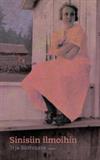
Hidden Order: The Economics of Everyday Life
2 journalers for this copy...
From Publishers Weekly
Friedman puts the passion back into economics with this unconventional, demanding primer. A professor at Santa Clara University (and son of Nobel laureate economist Milton Friedman), he insists that economics is not primarily about money, but rather about needs, wants, choices, values?an imperfect science predicated on the assumption that people tend to rationally choose the best way to achieve their objectives. Using scores of everyday examples to steer the reader through complex concepts, he discusses consumer preferences, street crime, lotteries, plea bargains in trials, sharecropping, financial speculation, political campaign spending and much else. He demystifies international trade (e.g., there's nothing inherently bad about a trade deficit) and deconstructs the economy as an interacting system all of whose elements are interdependent. A rewarding text for serious readers.
Friedman puts the passion back into economics with this unconventional, demanding primer. A professor at Santa Clara University (and son of Nobel laureate economist Milton Friedman), he insists that economics is not primarily about money, but rather about needs, wants, choices, values?an imperfect science predicated on the assumption that people tend to rationally choose the best way to achieve their objectives. Using scores of everyday examples to steer the reader through complex concepts, he discusses consumer preferences, street crime, lotteries, plea bargains in trials, sharecropping, financial speculation, political campaign spending and much else. He demystifies international trade (e.g., there's nothing inherently bad about a trade deficit) and deconstructs the economy as an interacting system all of whose elements are interdependent. A rewarding text for serious readers.
I finally finished this one. It is pretty heady which is what took me so long to read it. I would only make it through a couple pages at night before drifting off to sleep. It is more of a daytime read! LOL
This is not easy economics reading like Freakonomics, etc. This book would be awesome for a college economics class. It has very detailed information like you would learn at the level of a college course, but it is presented in a more entertaining way than a textbook. Having said that, it is definitely at the level of a college course, not bedside reading!
I did learn lots about economics that I didn't know before and for that I am grateful. I think about pricing a lot differently now. It also taught me that pretty much everything I thought about monopolies was wrong! I also was intrigued by the discussions on tax incentives for business/farm bill subsidies/etc. What a different country the US would be if our legislators as well as general population understood the true nature and effect of subsidies and incentives!
This was a tough read, but worthwhile. If I had read it in a college course, I would have given it 9 stars, but since it was difficult for pleasure reading, I'm sticking with 6 stars.
This is not easy economics reading like Freakonomics, etc. This book would be awesome for a college economics class. It has very detailed information like you would learn at the level of a college course, but it is presented in a more entertaining way than a textbook. Having said that, it is definitely at the level of a college course, not bedside reading!
I did learn lots about economics that I didn't know before and for that I am grateful. I think about pricing a lot differently now. It also taught me that pretty much everything I thought about monopolies was wrong! I also was intrigued by the discussions on tax incentives for business/farm bill subsidies/etc. What a different country the US would be if our legislators as well as general population understood the true nature and effect of subsidies and incentives!
This was a tough read, but worthwhile. If I had read it in a college course, I would have given it 9 stars, but since it was difficult for pleasure reading, I'm sticking with 6 stars.
Thanks!! Come back from my mini getaway and Ri's large package is here. The envelop is almost torn (and it's a bubble mailer!) but the two books are safe.
Hmm... a college textbook like read? My instinct is to shove it to the hidden corner of my TBR pile... but I will try to finish it one day when I am in the mood for going back to school. : D
Hmm... a college textbook like read? My instinct is to shove it to the hidden corner of my TBR pile... but I will try to finish it one day when I am in the mood for going back to school. : D















